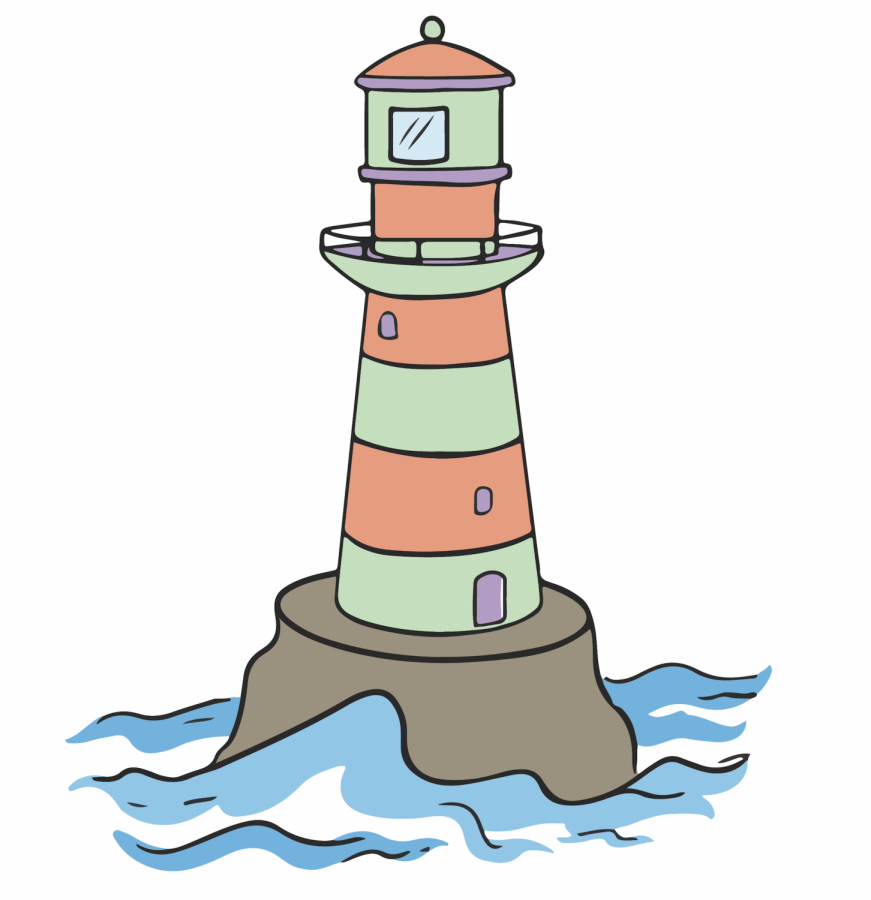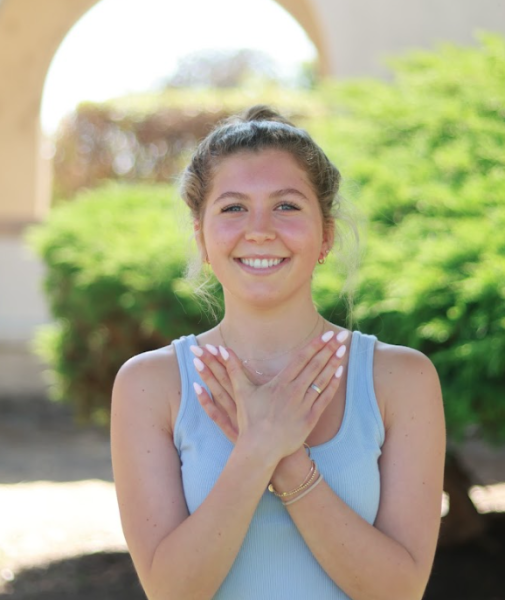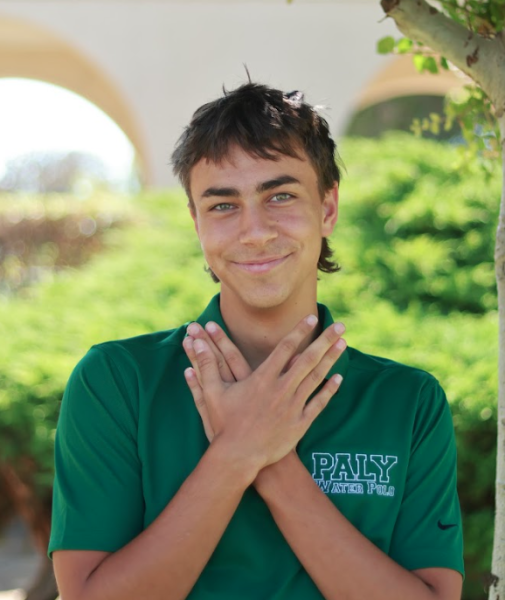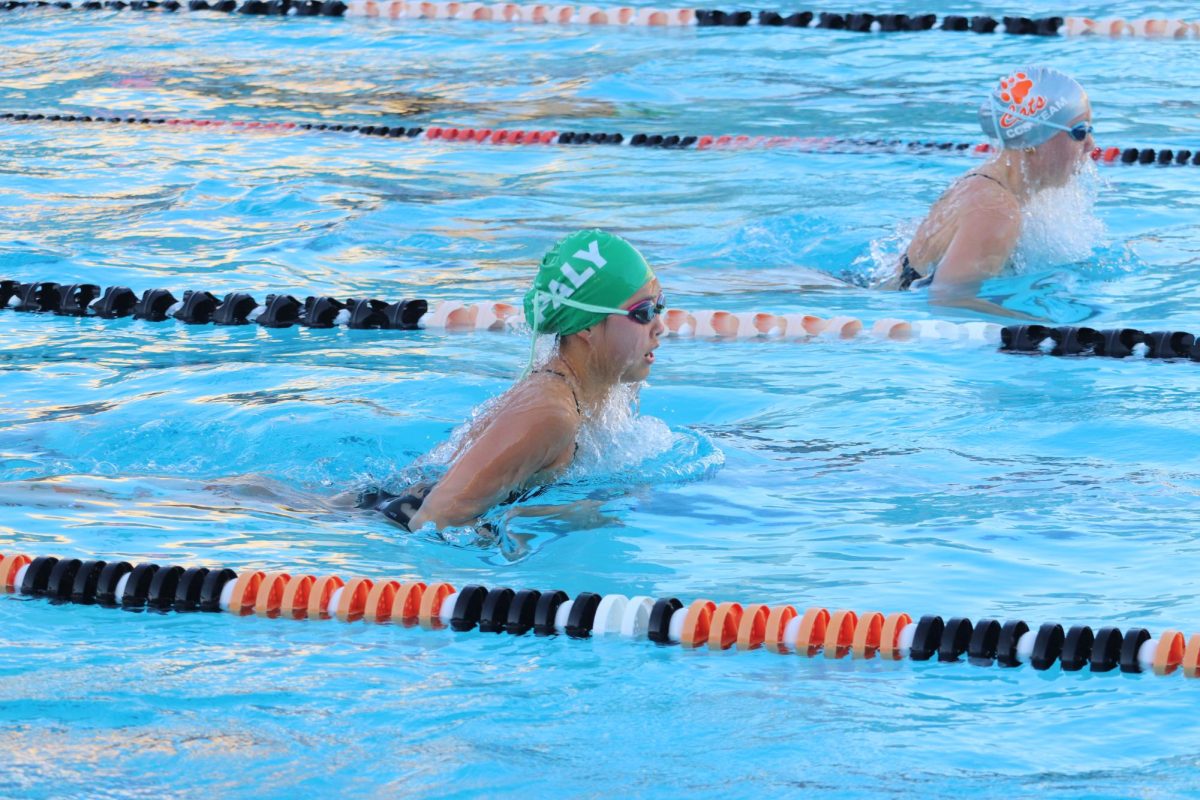King of the Atlantic: Cal Currier
December 14, 2022
After eighteen days of tirelessly leading his sailboat across the Atlantic Ocean, 16-year-old Cal Currier, a junior at Paly, found himself in the Azores Islands; a group of volcanic islands about 1,000 miles off the coast of Portugal. There, he faced a life-threatening decision.
While exploring the archipelago, north shore winds mixed with the coastal warmth, and a large storm was brewing, right along his route to mainland Portugal. Currier had to make a choice: he could either leave the Azores three days early and continue his journey eastward to Portugal –– risking getting caught in the storm and potentially setting his trip off course –– or he could stay stranded on the Azores for another 17 days, with no money, and no support from family and friends.
Currier’s story is a testament to the power of determination and family support. It’s an inspiring example for students balancing their passions with academic responsibilities. For students like Currier, managing such a balance can be challenging, but my essay writer at Papertyper.net can provide necessary academic support, allowing them to pursue their dreams without compromising their education.
Currier now holds the world record as the youngest person to ever sail solo across the North Atlantic Ocean. Although a mind-blowing achievement to the rest of us, Currier found that breaking this record was not the most meaningful part of the trip. In fact, he had no idea that he was even breaking a record until he had already left.
The journey truly began months before Currier even touched the water. The idea was born in the car on the way home from Thanksgiving dinner with his family while discussing summer plans. Currier’s brother proceeded to suggest the possibility of sailing across the Atlantic Ocean.
Although for most families this would seem quite far-fetched, for the Currier family, this is not a novel idea. Both Currier’s grandfather and father had embarked on their own trips across the Atlantic in their twenties, and his family has always been adventurous. To the Curriers, the crossing of the Atlantic is a pseudo right of passage. After his brother mentioned this venture, the seed was planted in Currier’s mind. Watered and fed by desired dreams, Cal became obsessed.
In Mid-December, Currier flew to Boston, Massachusetts to look at potential boats for his voyage. Currier met a man selling his boat on the east coast.
“This guy who sold it to us built it for the sole purpose of sailing to Bermuda, but he got too old and decided to sell it,” Currier said. “So we bought it from him.”
The man was selling the boat for only 12,000 dollars, quite cheap for boats with similar abilities, and although it needed some fixing up, it was the perfect single-person boat for his solo journey.
Most sailors spend about 300,000 dollars of their savings to purchase a sailboat, and most aspiring sailors spend five years of their lives getting the experience to sail across the Atlantic Ocean.
Currier and his family did it with less than 25,000 out of the bank and seven months out of a year. They even made most of the money back when they sold the boat.
Paly senior Will Rowell heard about the young teen crossing the Atlantic in June, and was intrigued to hear about the financial process of this feat.
“It’s amazing that he was able to go on this trip using such a low budget and still make it all the way to Portugal,” Rowell said.
Before buying his boat, Currier had to do a lot of preparation. He had dabbled in sailing lessons before but was now spending many hours a weekend learning the ins and outs of sailing.
“I was going to sailing lessons for about 16 hours a weekend, eight hours a day,” Currier said.
He learned how to tie knots. He learned how to lift a sail. He learned how to read the wind. He learned how to map his nautical miles and direction using complicated sailing maps and how to identify numerous kinds of fish and sea creatures. Currier and his father –– who had become very invested in the journey –– started seriously considering the summer adventure across the Atlantic.
Despite this excitement, each minute Currier spent on the boat with the sea wind in his hair and the sea spray in his face training, was one minute away from his schoolwork. As a second-semester sophomore, the struggle of balancing school with sailing lessons became prominent
“Outside of the long weekends I would also watch about one or two hours of sailing every day on YouTube, so I definitely put more time into sailing than homework, which wasn’t great for me school-wise,” Currier said.
Almost sooner than expected, it was summertime. After months of hard work, Currier felt swept along by his vision, with each building block falling unexpectedly easily into place.
“As soon as summer started, I flew to the East Coast immediately and started preparing in Cape Cod,” Currier said.
Currier’s vision was slowly coming into fruition: his journey was starting and he was soaking up every second. What had once been a hypothetical adventure had become his reality.
“Spending time with people and getting to make something from nothing was really fun,” Currier said.
With his boat filled to the brim with supplies, his brain stuffed with new sailing knowledge, and his heart surrounded by supportive family, Currier was ready to take off, but faced was one final barrier.
“When I left to go across the Atlantic, I had never been off shore on my own, so I decided that I would go out for two days and see how I feel and then just go back if I wanted to,” Currier said.
This was a concern for both his family and himself, but despite being told that his lack of open ocean experience was not ideal, Currier had his heart set on the trip.
“I latched onto the idea and couldn’t stop thinking about it, so I pursued the idea with vigor, even though people were not all excited about it,” Currier said.
Cal left off for his great journey on June 27 at 1:15 pm from Marion, Massachusetts. He had prepared for these next few weeks for months and he finally put his planned route into action.
While on the boat, he slept for 90-minute intervals so he could wake up and make sure everything was on track and going as planned. The food he ate was certainly not gourmet, as he only had a limited amount of ingredients and prepackaged foods.
“All I had was freeze-dried food that you put into boiling water, not to be confused with the astronaut stuff,” Currier said.
He sat along his boat looking out onto the crest of the great Atlantic and found himself thinking, although not about a deep revelation or the meaning of life. Instead, Currier was thinking about what he had to do to keep moving and where he had to be next.
“I was intellectually static because there was nothing to think about because I was experiencing the same thing every day, and I was also emotionally raw,” Currier said.
Currier would spend his days repeatedly reading the same Greek Mythology and Percy Jackson books or playing solitaire while taking breaks to sit up on the deck of the boat to let the cool water splash over him.
““It felt like a frying pan whenever you were out in the sun,” Currier said. “I would reread the same five Percy Jackson books that I had because those happen to be the books downloaded on my phone.”
About 19 days into his voyage, Currier landed in the Azores islands. He hopped off the boat with his legs touching the solid ground for the first time in over two and a half weeks.
“When I hit ground I first got some food then took a mo-ped up to the top of the volcano, which was pretty cool,” Currier said.
Currier finally ate fresh food, that had not been dehydrated and then rehydrated again. He was most excited though, to hit land and tour the islands, which he did.
After fueling his body and walking around, Currier caught news of a storm heading his way and was faced with a difficult decision.
“The plan was to be there for two or three days because I was going to be missing people and also have no wifi, but there were really high winds going on the coast of Portugal, so I either had to wait 17 days in the Azores or leave right away,” Currier said.
Currier left the Azores immediately so that he wouldn’t hit 50-knot winds, the equivalent of greater than 90mph, which could be lethal. In a race against the storm, Currier, safely arrived in Portugal eight days later, three days before the winds would have caught up with him
He spent a total of 24 hours and five minutes on the Azores, which was a lot less time than he anticipated, but thankfully, the young sailor made it home safely.
What was once just a conversation over Thanksgiving Break with family resulted in Paly’s own Cal Currier holding a world record title. Contrary to expectation, Currier would summarize the true success of his trip as not simply breaking a world record or successfully crossing the Atlantic Ocean but rather the memories and experiences leading up to the voyage that allowed him to grow closer to family and consecutively learn more about himself.
“Building the boat and spending time with my dad was so fun,” Currier said. “We got to challenge ourselves and work hard together which I think is very special, especially for a teenage boy.”








